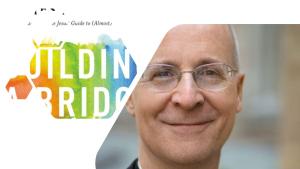Considering the upcoming Second Session on the Synod of Synodality, Fr. James Martin, SJ., decided to exercise the Synod’s challenge to “listen” by spending some time listening to critical delegates of the LGBTQ lifestyle within the Synod of Synodality. He recently wrote about his experiences in America, a magazine he acts as the editor. Unfortunately, the article appears behind a paywall, so if you do not pay, you cannot read it.
For this article, I examine Fr. Martin’s responses to these delegates to see if he truly listened to them.
The Main Concerns of LGBTQ Critics Within the Church
According to Fr. Martin, the main concerns of LGBTQ critics within the Church fall into four categories: ideological, cultural (in the form of colonialism), a Western preoccupation, and instructional (Church teaching). To Fr. Martin, each of these categories represents an unhelpful criticism, as they each deal with ideas and not the people who hold them.
Does the Fr. Martin article reflect that he listened to the concerns of the delegates? I contend he downplays the “lived experience” of these delegates, while at the same time identifying LGBTQ ideas and LGBTQ people as the same thing. This makes any criticism of LGBTQ ideas a criticism of LGBTQ people.
Ideological
The most common response to any mention of L.G.B.T.Q. people is that issues surrounding this topic are merely an “ideology,” that is, a faulty belief system imposed on unsuspecting people, often youth. This helps to explain the reluctance of many delegates even to use the term “L.G.B.T.Q.,” which was seen not as an identification of a community but as a reflection of a dangerous ideology.
Here, Fr. Martin identifies actions or ideas of LGBTQ people with LGBTQ people themselves. Some delegates, he contends, fail to see LGBTQ people as people with valid “lived experiences,” as “the vast majority of gay, lesbian, bisexual and transgender people will tell you that they are not responding to ideas, but to their own experiences.” This, I think, represents a key difference between Fr. Martin and the delegates he attempts to listen to. These delegates focus on ideas held by people, while Fr. Martin (and those in his camp) see those ideas and the people who hold them as the same thing.
Cultural Colonialism
Another common response during the synod and in my conversations over the past 12 months was linked to the first objection: colonial powers have exported this ideology. That is, homosexuality is an importation of Western colonizers, not in keeping with the original cultural norms of other locales, especially in the developing world. This never existed in our country, one bishop told me. It is “an import,” said another. “An unwelcome visitor,” said another.
How does Fr. Martin listen to such concerns? By calling such concerns repressive and homophobic.
Sadly, the “colonialist” and “ideology” arguments are often used by governments and dictatorships that support homophobic policies, and the church, in turn, may feel pressured to accede to this political repression.
What of the lived experience of the anonymous bishop? Does he not know his own culture more than Fr. Martin? Furthermore, does Fr. Martin consider homophobic and repressive any person that does not affirm the validity of the LGBTQ lifestyle? Again, when an idea and a person exist as one, it becomes difficult to differentiate between “bad ideas” and “bad people.”
Western Preoccupation
So some Catholic leaders, seeing few people discussing these topics in their countries, label it not only a Western issue, but, more specifically, a Western preoccupation.
Sadly, Fr. Martin again chalks such attitudes up to homophobia.
One priest also admitted that in his country, where homophobia is rampant, there are gay priests who feel a deep sense of shame. “So they try to push it down and deny it.”
Again, what of the “lived experiences” of delegates who do not experience open discussion of the LGBTQ lifestyle? Why claim rampant denial and call homophobic the experiences of those in other cultures who see such open discussions of such topics as inappropriate? Countries not influenced by the West’s sexual revolution, countries that still hold to more traditional cultural norms, discussions of private topics (like sex) appear inappropriate and taboo. To discuss them openly and often DOES come off as a preoccupation.
Instructional (Opposed by Church Teaching)
L.G.B.T.Q. people oppose church teaching. In this line of reasoning, any mention of L.G.B.T.Q. people is to be forbidden because L.G.B.T.Q. people oppose church teaching, which states that homosexual acts are “intrinsically disordered.” Certainly there are L.G.B.T.Q. people who oppose church teaching, who engage in same-sex activity and who are married to same-sex partners. But opposition among some Catholic leaders is stronger, more visceral, than the fear of seeming to approve opposition to church teaching.
Last year, after I shared the story of same-sex couple I knew, one Latin American prelate said to me that he appreciated the example of self-giving love in the relationship, but that the sexual act itself was not only against church teaching, but “disgusting.”
The final critical opinion held by some delegates concerns the Church teaching on human sexuality. The Church remains clear on her teaching regarding sexual relationships and considered homosexual acts as intrinsically disordered. Furthermore, the Church does not identify this disordered act with the person doing it as if they are one and the same. Fr. Martin infers that the Church (and those within it who adhere to Church teaching) label people as disordered, not merely the act itself. Such a labelling only occurs in the minds of those who see the act and the person as the same thing. Therefore, to support Church teaching means opposing LGBTQ people. It also means not “listening” to the stories of LGBTQ people.
Final Thoughts…
To conclude, I remain unconvinced that Fr. Martin listened to synod delegates opposed to LGBTQ issues. His criticisms ultimately boil down to these delegates acting homophobic and supporting bigoted repression. He fails to listen to the concerns of these delegates and he unnecessarily uses labels to summarily dismiss their concerns.
I invite Fr. Martin to revisit his attempt at listening during the Second session. I hope he actually does so this time.
Thank you!
Read The Latin Right’s other writing here.
Please visit my Facebook page and IM your questions (and follow my page) or topics for articles you would like covered.
Also, please subscribe my YouTube page for updates on upcoming articles.

Synod on Synodality II: Is Fr. Martin Really “Listening?”













